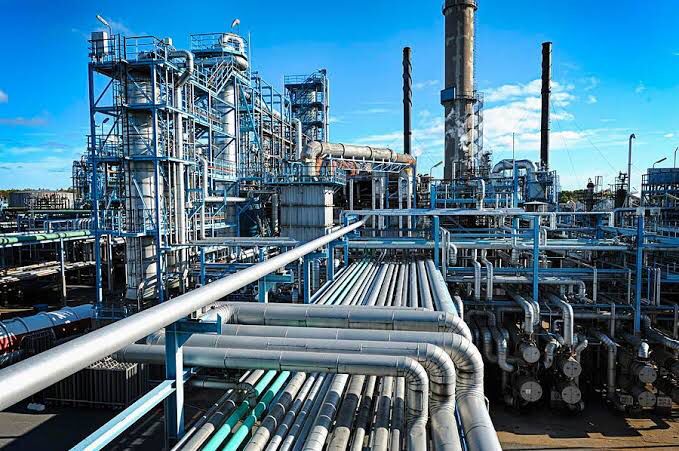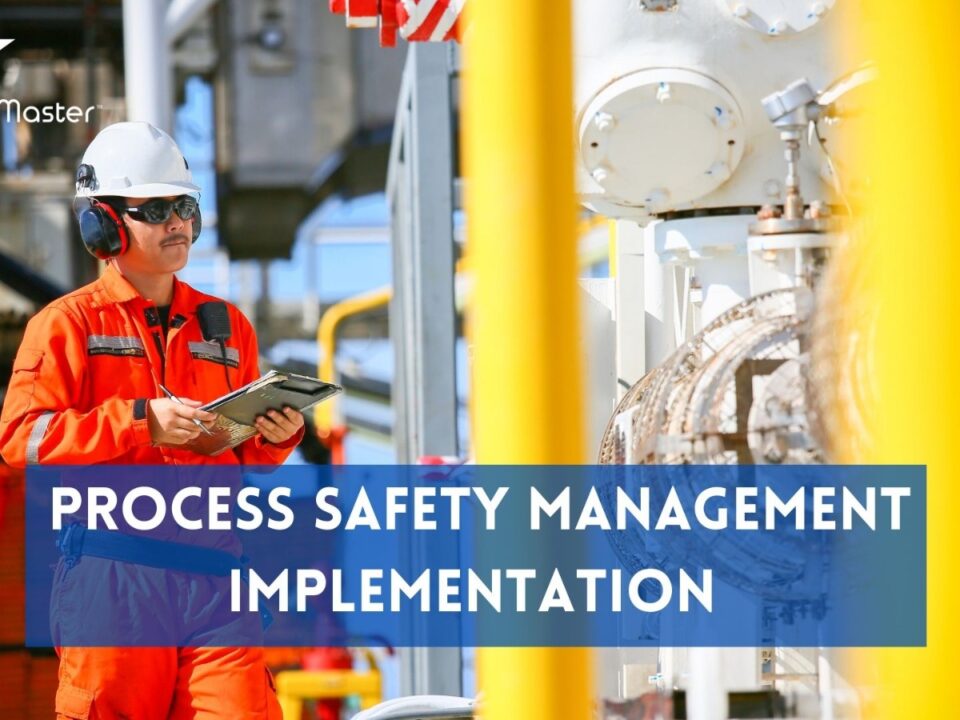Delving into Mechanical Integrity and Quality Assurance Programs: A Prerequisite for Success in Process Industries

The Importance of Process Safety Audit in Indian Industries: Mitigating Risks and Ensuring Standards Compliance
November 21, 2024
Uncovering Potential Hazards: The Role of Electrical Safety Audits in Improving Workplace Safety in Indian Manufacturing Industries
November 23, 2024In this article, we delve into the critical aspects of mechanical integrity and quality assurance programs and their undeniable importance in the realm of process industries. As organizations strive for excellence and utmost efficiency, these programs stand as an indispensable prerequisite for success. Join us as we unravel the complexities and challenges faced within these programs, revealing the key elements that are crucial for ensuring safe and reliable operations. Expect to gain a deeper understanding of the significance of mechanical integrity and quality assurance, and be prepared to explore promising strategies that will undoubtedly elevate your performance in the process industries. Together, let’s unlock the pathway to sustainable success.
Introduction
As the wheels of industry turn and progress marches forward, there is an ever-present need to ensure the reliability and safety of processes in the dynamic world of process industries. It is within this context that the paramount importance of mechanical integrity and quality assurance programs comes to the fore. These programs serve as the bedrock upon which success in process industries is built, providing a solid foundation for efficiency, productivity, and ultimately, profitability.
In this illuminating exploration into mechanical integrity and quality assurance programs, we will embark on a journey to uncover their intricacies, examine their significance in process industries, and delve into the key elements that contribute to their success. We will also navigate through regulatory requirements, industry best practices, and training considerations for personnel involved in these programs – ultimately showcasing how effective implementation can yield remarkable results
Understanding Mechanical Integrity and Quality Assurance Programs
Understanding Mechanical Integrity and Quality Assurance Programs: Mechanical integrity is the backbone of process industries, ensuring the reliability and safety of equipment and systems. It encompasses a comprehensive set of practices aimed at preventing failures, identifying potential risks, and maintaining the overall integrity of machinery. Quality assurance programs, on the other hand, focus on ensuring that products or services meet established standards and customer expectations.
Within mechanical integrity programs, various elements come into play. These include inspection and testing protocols to detect any signs of deterioration or malfunctioning equipment. Regular maintenance procedures are also crucial for identifying potential issues before they escalate into major problems. Additionally, documentation plays a vital role by recording equipment history, inspection results, repairs undertaken, and other relevant information.
The importance of quality assurance programs cannot be undermined either. They guarantee that products meet stringent quality standards through rigorous testing and adherence to specific guidelines. By implementing these programs, process industries can instill confidence in their clients while ensuring customer satisfaction.
Optimistic spin: Embracing mechanical integrity and quality assurance programs sets process industries on a path towards excellence by promoting reliability, efficiency, and safety. By investing in these programs wholeheartedly, companies not only enhance their reputation but also inspire trust among stakeholders in an ever-competitive market landscape
Importance of Mechanical Integrity and Quality Assurance in Process Industries
In the intricate web of process industries, mechanical integrity and quality assurance serve as the cornerstone of success and sustainability. The importance of these two vital components cannot be overstated, as they ensure the safe and reliable operation of equipment, prevent accidents, minimize downtime, and protect the environment. With an ever-increasing focus on efficiency, productivity, and risk management, process industries must embrace robust mechanical integrity and quality assurance programs to flourish in a competitive landscape.Mechanical integrity encompasses a comprehensive set of practices aimed at maintaining the reliability and functionality of equipment throughout its lifecycle. It involves regular inspections, testing, maintenance, repairs, and documentation to guarantee that assets are in compliance with industry standards and regulations. By prioritizing mechanical integrity in process industries such as oil refineries, chemical plants, or power generation facilities, companies can mitigate potential risks associated with equipment failure or malfunction. This not only safeguards employee well-being but also preserves valuable assets while ensuring uninterrupted production.
Quality assurance programs go hand in hand with mechanical integrity by ensuring that processes adhere to established guidelines consistently. These programs encompass systematic checks and audits to verify that products meet strict quality standards throughout the manufacturing or production cycle. By implementing robust quality assurance measures within process industries, companies can enhance customer satisfaction by delivering products that are reliable, safe-to-use, and meet all regulatory requirements.
The symbiotic relationship between mechanical integrity and quality assurance is crucial for process industries seeking long-term success. By investing resources into these programs proactively rather than reactively addressing issues after they arise—companies lay a solid foundation for operational excellence while gaining a competitive edge within their respective markets
Key Elements of a Successful Mechanical Integrity Program
Key Elements of a Successful Mechanical Integrity Program:A robust and effective mechanical integrity program is crucial for ensuring the safe and reliable operation of equipment in process industries. It encompasses various key elements that work in harmony to maintain the integrity of critical assets and prevent accidents or failures. One essential element is comprehensive inspection procedures, which involve regular assessments of equipment condition, identification of potential flaws, and proactive mitigation measures. These inspections should be conducted by skilled personnel using advanced technologies to ensure accuracy and reliability.
Another vital element is preventive maintenance, which involves regularly scheduled activities such as lubrication, calibration, and equipment testing. By adhering to a well-defined maintenance plan, potential issues can be identified before they escalate into costly breakdowns or safety hazards. Additionally, having a thorough documentation system is imperative for tracking equipment history, inspection results, maintenance records, and any modifications made. This enables efficient decision-making processes and facilitates regulatory compliance audits.
Furthermore, an effective management of change process plays a significant role in maintaining mechanical integrity. It ensures that any alterations to equipment design or operating conditions are thoroughly reviewed for potential impacts on safety and performance. This includes considering factors like material compatibility, pressure limitations, temperature ranges, and regulatory requirements. By implementing a robust management of change procedure within the organization’s culture, risks associated with modifications can be minimized.
In summary, a successful mechanical integrity program necessitates meticulous inspection protocols utilizing cutting-edge technology alongside preventive maintenance plans supported by accurate documentation systems. Furthermore, incorporating a rigorous management of change process ensures that alterations are carefully assessed before implementation. By embracing these key elements within their operations framework, process industries can enhance overall safety measures while optimizing asset performance for long-term success.
Implementing Quality Assurance Programs in Process Industries
In order to ensure the highest standards of safety and reliability, process industries must establish robust quality assurance programs. These programs encompass a wide range of activities aimed at preventing defects, identifying potential risks, and continuously improving processes. One vital aspect of implementing these programs is conducting thorough inspections and audits to identify any deviations or non-conformities from established protocols.Furthermore, process industries must develop comprehensive documentation that outlines the specific procedures and protocols for each operational task. This documentation serves as a guide for employees, facilitating consistent adherence to quality standards across the organization. Furthermore, it enables effective communication between different teams and departments, fostering collaboration and a shared commitment towards achieving excellence.
A key component of implementing quality assurance programs is investing in advanced technology and tools that facilitate accurate monitoring and data analysis. For instance, employing state-of-the-art sensors and monitoring systems can provide real-time feedback on critical parameters such as temperature, pressure, or flow rates within various processes. This enables swift identification of any anomalies or deviations from prescribed limits, allowing proactive measures to be taken promptly.
By diligently implementing quality assurance programs in process industries, companies can not only enhance their operational efficiency but also gain a competitive edge in the market. These programs instill confidence among stakeholders by ensuring products meet or exceed industry standards while minimizing risks associated with equipment failure or subpar performance. Ultimately, embracing quality assurance practices empowers organizations to consistently deliver exceptional products while fostering a culture of continuous improvement throughout their operations.
Benefits of Effective Mechanical Integrity and Quality Assurance Programs
In the intricate tapestry of process industries, effective Mechanical Integrity and Quality Assurance programs serve as the shining beacons of success. These programs bestow a myriad of benefits upon organizations that diligently implement them. First and foremost, they enhance safety by mitigating the risks associated with equipment failure, ensuring smooth operations, and safeguarding personnel from potential hazards. Additionally, these programs bolster reliability and productivity by minimizing unplanned downtime and maximizing the lifespan of critical assets.Moreover, a well-structured Mechanical Integrity program fosters operational excellence by promoting proactive maintenance practices. By regularly inspecting equipment, identifying potential issues early on, and implementing appropriate corrective measures promptly, organizations can optimize their operations while reducing costs in the long run. Furthermore, quality assurance programs complement this effort by establishing robust quality control processes that result in consistent product quality.
A delightful side effect of effective Mechanical Integrity and Quality Assurance programs is an enhanced reputation within the industry. Organizations that invest in these initiatives demonstrate their commitment to excellence, garnering trust from clients and stakeholders alike. As a result, they often find themselves at the forefront of innovation and collaboration opportunities.
In conclusion, embracing Mechanical Integrity and Quality Assurance programs yields numerous advantages for process industries. From ensuring safety to driving operational efficiency while building trust among peers – these programs become catalysts for success in an ever-evolving industrial landscape. By prioritizing such initiatives with unwavering dedication to detail and precision, organizations pave their path towards sustained growth and prosperity.
Challenges in Maintaining Mechanical Integrity and Quality Assurance
Challenges in Maintaining Mechanical Integrity and Quality Assurance:Within the realm of process industries, the path towards achieving and sustaining mechanical integrity and quality assurance is not without obstacles. One of the primary challenges lies in managing aging infrastructure, as equipment deterioration over time can compromise its reliability. Organizations must proactively address this issue by implementing robust inspection and maintenance programs to detect potential failures before they occur. By doing so, they can extend the lifespan of critical assets, enhance operational efficiency, and ensure a safe working environment for their personnel.
Another key challenge is the ever-evolving nature of technology and industry standards. With advancements occurring at a rapid pace, organizations must stay abreast of emerging technologies to ensure their mechanical integrity programs remain effective and compliant with regulatory requirements. This necessitates investments in research and development to explore innovative solutions that enhance asset reliability while minimizing operational risks. Additionally, continuous training programs for personnel are vital to equip them with up-to-date knowledge on best practices and technological advancements.
Furthermore, maintaining communication across various levels within an organization presents its own set of challenges. Collaboration between operations teams, maintenance crews, engineering departments, and management is crucial for successful implementation of mechanical integrity and quality assurance programs. Effective communication channels facilitate the exchange of valuable insights regarding asset performance, potential hazards or abnormalities identified during inspections, as well as recommendations for optimization. Encouraging open dialogue fosters a culture that values transparency and promotes collective problem-solving.
In addressing these challenges head-on while embracing innovative solutions, organizations in process industries can navigate the complexities associated with maintaining mechanical integrity and quality assurance successfully
Regulatory Requirements for Mechanical Integrity and Quality Assurance Programs
Ensuring regulatory compliance is a fundamental aspect of any mechanical integrity and quality assurance program in process industries. These programs are subject to stringent guidelines imposed by governmental bodies and industry-specific regulatory agencies. Compliance with these regulations not only ensures the safety and reliability of equipment and processes but also safeguards the environment and protects human lives.Regulatory requirements encompass various aspects, including documentation, inspections, maintenance protocols, testing procedures, record-keeping, and reporting standards. Adhering to these requirements demonstrates a commitment to upholding industry standards and best practices. By following the guidelines set forth by regulatory agencies, organizations can instill confidence in stakeholders regarding their commitment to safety, quality control, and responsible operations.
While compliance can sometimes be seen as a burden or an additional cost for businesses, it is crucial to view it as an opportunity for growth and improvement. Regulatory requirements often push organizations to enhance their processes, upgrade equipment, implement effective risk management systems, provide adequate training to employees, and foster a culture of continuous improvement. In this way, regulations act as catalysts for positive change within the industry by driving innovation and elevating overall standards.
By embracing regulatory requirements as necessary benchmarks rather than mere obligations or obstacles to overcome, organizations can position themselves as leaders in their respective industries. Compliance not only ensures legal adherence but also promotes operational excellence through enhanced mechanical integrity practices
Industry Best Practices for Mechanical Integrity and Quality Assurance
Industry Best Practices for Mechanical Integrity and Quality Assurance:Mechanical integrity and quality assurance are paramount in process industries, ensuring the reliability and safety of equipment and processes. Industry best practices play a crucial role in maintaining these standards. One notable practice is the implementation of preventive maintenance strategies, which helps to identify potential issues before they escalate into costly failures. By conducting regular inspections, testing, and evaluations, companies can proactively address mechanical integrity concerns.
Another key best practice is the utilization of advanced technologies such as predictive maintenance tools. These tools leverage data analytics, artificial intelligence, and machine learning algorithms to predict equipment failures accurately. By employing these innovative techniques, companies can optimize their maintenance schedules, reduce downtime, and enhance overall operational efficiency.
Furthermore, industry leaders emphasize the importance of fostering a culture of continuous improvement within organizations. This involves promoting open communication channels among employees at all levels to encourage reporting of potential problems or deviations from quality standards. Implementing robust training programs that enhance technical skills and knowledge is also crucial for personnel involved in mechanical integrity and quality assurance roles. By investing in employee development initiatives, companies can ensure a skilled workforce capable of upholding best practices.
Overall, adopting industry best practices not only enhances mechanical integrity programs but also promotes sustainable growth within process industries. Embracing proactive approaches to maintenance and leveraging technological advancements sets the stage for increased efficiency while minimizing risks associated with equipment failure or non-compliance with quality standards. By embracing these practices wholeheartedly, organizations position themselves as leaders in their respective fields while guaranteeing a safe working environment for their employees
Training and Certification for Personnel Involved in Mechanical Integrity and Quality Assurance
Training and Certification for Personnel Involved in Mechanical Integrity and Quality Assurance:In order to ensure the successful implementation of mechanical integrity and quality assurance programs, it is imperative to equip the personnel involved with the necessary training and certification. These individuals play a crucial role in maintaining the integrity of equipment, conducting inspections, and ensuring compliance with industry standards.
Training programs for personnel involved in mechanical integrity and quality assurance should cover a wide range of topics, including but not limited to: understanding equipment design principles, inspection techniques, risk assessment methodologies, and regulatory compliance requirements. Additionally, training should emphasize the importance of attention to detail, accuracy, and precision in executing inspection tasks. By providing comprehensive training programs that encompass theoretical knowledge as well as practical hands-on experience, companies can empower their employees to effectively carry out their responsibilities.
Obtaining certifications related to mechanical integrity and quality assurance demonstrates a higher level of competency among personnel. Certifications such as API 510 (Pressure Vessel Inspector), API 570 (Piping Inspector), or API 580/581 (Risk-Based Inspection) serve as recognized industry standards that validate an individual’s expertise in specific areas. These certifications not only enhance professional development but also instill confidence among clients and stakeholders regarding the competence of personnel responsible for ensuring mechanical integrity.
By investing in continuous education opportunities for personnel involved in mechanical integrity and quality assurance, companies foster a culture of excellence within their workforce. This commitment to ongoing learning ensures that employees stay up-to-date with technological advancements and industry best practices. Ultimately, well-trained and certified personnel contribute significantly towards maintaining high standards of safety, reliability, and efficiency within process industries.
Remember: Knowledge is power; empowering your employees through training enables them to become invaluable assets that drive success within your organization.
Case Studies: Successful Implementation of Mechanical Integrity Programs in Process Industries
Amidst the intricate world of process industries, where mechanical integrity and quality assurance play vital roles, success stories abound that showcase the effective implementation of these programs. One such case study takes us to a renowned refinery on the outskirts of an industrial city. Faced with frequent equipment failures resulting in costly downtime and compromised safety, the facility decided to revamp its mechanical integrity program. By investing in advanced inspection techniques, such as non-destructive testing and vibration analysis, they were able to identify potential issues proactively. This preemptive approach not only mitigated risks but also extended the lifespan of critical assets, leading to improved operational efficiency.Another remarkable case comes from a petrochemical plant that encountered recurring quality issues in its end products. Recognizing the significance of a robust quality assurance program, they implemented comprehensive measures ranging from stringent raw material inspections to rigorous process controls and final product testing. Through continuous monitoring and feedback loops, they were able to identify bottlenecks and optimize their operations accordingly. As a result, product defects decreased significantly, customer satisfaction soared, and market share expanded.
These success stories highlight how diligent implementation of mechanical integrity and quality assurance programs can revolutionize process industries by minimizing downtime, enhancing safety protocols, optimizing operations, improving product quality, boosting customer satisfaction levels, and driving overall profitability. Such transformative experiences reaffirm the value of investing time and resources into establishing comprehensive programs that prioritize excellence at every stage of production.
Conclusion
In contemplating the multifaceted realm of Mechanical Integrity and Quality Assurance Programs, we are compelled to grasp their paramount significance in the landscape of process industries. These programs serve as the cornerstone for ensuring operational safety, reliability, and efficiency in a world driven by industrial progress. As we witness the meticulous implementation of these programs through adherence to regulatory requirements and industry best practices, a comforting reassurance envelops us—an assurance that our technological advancements are supported by a robust framework that safeguards against potential failures. By nurturing a culture of continuous improvement and fostering an unwavering commitment to quality, process industries can confidently navigate the complex challenges they face, knowing that their foundation is fortified by unwavering integrity.




